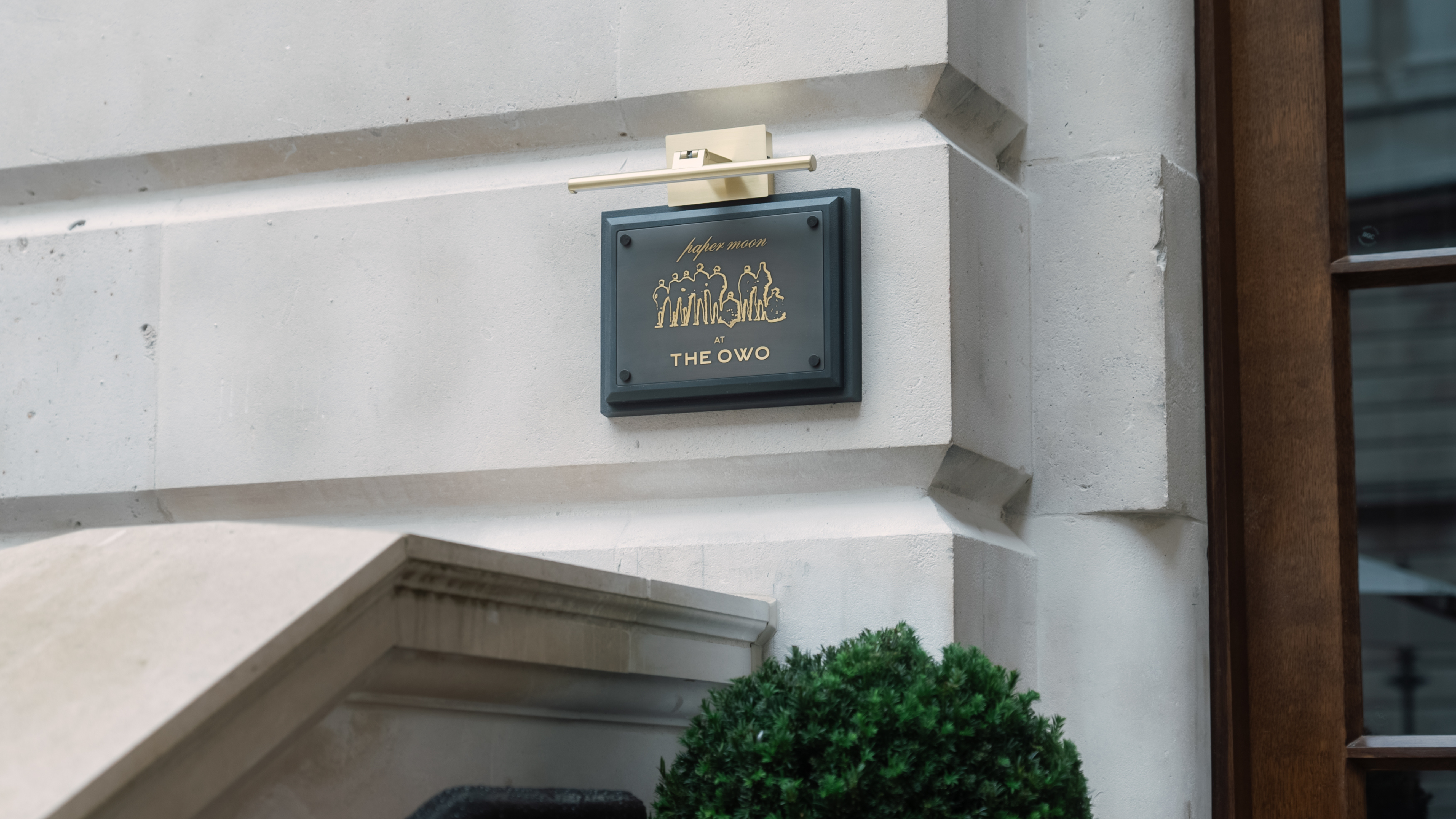Last Tuesday we hosted our end-of-year Circle London lunch at Paper Moon London, the Milanese favourite that recently opened within Raffles at The OWO. If you’ve not been it’s certainly a place to have on your hitlist. Along with the great company, exceptional food and wine, our members received an exclusive insight into the importance of creativity in the screen arts for our culture and economy courtesy of guest speaker Jane Millichip, CEO of the British Academy of Film and Television Arts, otherwise referred to as BAFTA.
This incredible leading arts charity, awards body and membership organisation represents the film, games and TV industries. BAFA’s charitable remit is to level the playfield for all creatives and practitioners, regardless of background or life experience. To advocate progressive practices and to champion screen art. As CEO of BAFTA, Jane also oversees Albert, a sustainability organisation for the screen industries dedicated to reducing harmful greenhouse emissions and providing research and data to enable creators to tackle climate narratives via storytelling.
Before BAFTA, Jane was chief content officer of Sky Studios, overseeing editorial and commercial activity in Europe. At Sky, she also established Sky’s Production Portfolio and built its IP and distribution business. With over 30 years of experience in media, including TV production, distribution and broadcasting, M&A and print journals, Jane is also a trustee of SEED, a sustainability environmental education charity, a mentor at Women in Film and Television and a regular contributor to independent arts and culture magazines. She certainly is a force to be reckoned with. To learn more, please read on.

Creativity in the Screen Arts for Our Culture and Economy – why is this Important to us?
Ultimately humans are storytellers. From the songlines of Australia to now, we need to tell each other stories. It’s the way we communicate how we are feeling, what we are doing and where we are going. At a recent event hosted at The Royal Foundation, the royal charitable enterprise of which BAFTA is a patron, we were talking about early years development, a topical subject which is very close to Catherine The Princess of Wales. During the speeches, there was a lot of interesting data and scientific facts. This was all fascinating, however, one psychologist spoke about the importance of being in a calm state when changing a baby’s nappy. During this exchange the baby is vulnerable, they can’t speak, walk, or crawl, lying on their back exposed. He said the very best thing you can do at this moment in time is smile. I said to my neighbour, at the end of the day, this anecdote would be the only thing people would remember. And safe to say this question was asked at the end of the event and most people had forgotten the statistics, perhaps absorbed a few scientific facts, but the one thing the majority remembered was the story about the baby. It’s about human emotion and connecting, and that’s why storytelling is vital to our culture and everything we do.

At BAFTA we also feel it’s important that the screen arts represent everyone. We are an awards body and a membership organisation, as well as an independent arts charity. Our remit is to level the playing field and ensure that everybody has a stake in the screen arts going forward. Regardless of their background or their life experience. In the past few years, we have infused our membership with a much broader church of society, we also run lots of training programmes, and initiatives development programmes, particularly for those who face barriers and bias in entering the film and screen industries. It’s not just about tokenism in representation, being inclusive means when we get more people from more backgrounds telling us their stories, in turn, these stories become richer and more engaging, so we all benefit from that as a whole.
The importance of sustainability and what BAFTA is trying to do from an ecological angle
BAFTA is a big charity, but equally, it plays just a spec on the vast cultural landscape. Our brand is fabulous and we certainly punch above our weight. Our annual revenue is £23M, which is tiny when you think about what we deliver every year. We need to double it to continue the work we do at the very least. But in the meantime, what we are good at is choosing our lane. 12 years ago, the big broadcasters in the UK came together and decided they wanted to back a decarbonisation programme on TV. But knew they needed an entity, a so-called Switzerland in the middle. BAFTA stepped in and created BAFTA Albert, a name which alludes to the first carbon-neutral TV programme in the UK which was Eastenders, aptly named after Albert Square.
There are two parts of BAFTA Albert, one is the decarbonisation programme and since the beginning of 2022, we are proud to say every TV programme in the UK has to go through this. At the beginning of production, all the data is uploaded, and it goes through a carbon calculator which in turn produces a carbon action plan. This is a comprehensive guide on how the production team can reduce their carbon footprint throughout the creative process. Thanks to TV we have the power of a voice, which is the other arm of BAFTA Albert, our storytelling unit. We provide creators, writers, directors, and producers with science-based information, resource and data which enables them to tackle climate-positive storytelling. Which can be anything from news, soaps, documentaries and drama. We also provide training across the industry and in the past year, we’ve agreed with all the broadcasters in the UK to deepen the decarbonisation programme. Now BAFTA Albert is coordinating with all the broadcasters to go into supply chains and set targets around diesel emissions and other environmentally challenging areas. It’s about being focused, using the brand to its best effect, and getting a cut-through message.

How can high-end brands align with BAFTA?
There are lots of opportunities to engage with BAFTA at different levels. The organisation is dependent on and grateful to, our patrons and donors, and that is an easy way to get involved with us. We try to make this experience as joyful as we can, understanding the moments patrons and donors enjoy are those which are unique and unusual, such as access to rare interactions with great talent. Just recently we had a conversation with James Ivory of Ivory Merchant Productions and Kristin Scott Thomas, a special experience exclusively set up for our patrons and donors. We host these alongside big member events such as award shows, and invitations which open up a world of the screen arts, from games and television.
In February next year, we are running our bi-annual Gala. A big fundraiser held three days before the film awards. We know we need to raise money and ensure that the prizes are fun. For instance, a bidder could win a pint with Liam Gallagher, or a trip to the Great British Bake Off Set. We mix experiential experiences with talent alongside material prizes.
If you are engaged with learning development, young people, or the screen arts in another way, there are lots of other ways you can connect with BAFTA. We run several programmes every year that we have created and produced such as BAFTA Breakthrough and BAFTA Elevate. These are career-changing schemes for entrance into the film, television and games world, as well as being career accelerators. We aren’t like the National Film and Television School (NFTS) we’re not educators, but we do run development programmes, mid-level courses, bursaries, and scholarships through NFTS. So, if you have an interest in championing young talent you can access us through numerous touch points.
We all like to be a step ahead, especially in culture, what should we be looking out for in 2024?
The film and TV business is consumed at present with how to deal with AI, and we are trying not to panic. It’s a tool, we just need to understand how to use it. I’ve seen AI-written scripts and judging if they are good or not depends on what they are being used for. Often a writer has a day where they are stuck, they can’t bridge two scenes and are unsure of how to take a character there. At times like this, you can use AI and it will give you the journey. Albeit a fairly straightforward one, but it’s your characters, your story. So, if you use it that way, as a tool, I see benefits with AI. I was working in publishing when desktop publishing was introduced and we thought that was the end of journalism, however, what it did was just proliferate the sector. I see AI as a tool, and you just need to learn how to use it correctly. I’m looking forward to seeing how you can explore using AI creatively in a more advanced way. What we do need to get clarity on however is the copyright issues surrounding AI, and the acting world is very concerned about face capture, which we need to take seriously. I hope you are going to the cinema a lot as some amazing films are being produced, however, I’m not allowed to have an opinion!
Any upcoming talent to have on our radar?
There is some exciting British talent coming up next year, for example, Charlotte Regan the director is incredible. There’s some amazing acting talent, we recently did an event with patron Harris Dickinson, and although he’s already done a lot, he’s going to be an incredible powerhouse in acting. A nice guy as well as being a thoughtful actor, catch him in the film Scrapper. Others to look out for come from the EE Rising Star nominees (lots of whom have gone on the have huge careers such as Jack O’Connell) as well as the BAFTA Breakthrough Talent.

What opportunities for BAFTA are there in America?
We have a well-established branch, BAFTA North America, but because of charity laws, it has to be a separate company. We are at a point now, where it does a good job, every year they run the BAFTA Tea Parties which are a prelude to the big awards which are incredibly well attended by everyone in Hollywood, a kind of a precursor to the award season. There’s a membership division and we also run screenings, masterclasses and a few Q+A sessions. It’s like a cut-down version of what we do in the UK. However, North America holds an enormous amount of opportunity for us and we know we need and want to build upon it. It’s in the plan for the next 2-3 years, to amplify what we do so well here in the US.
Join our LinkedIn page and follow us to connect with other members and receive regular business insights from global leaders within the luxury industry